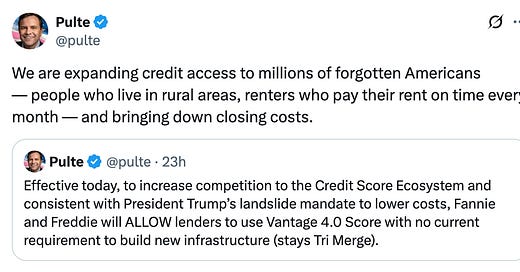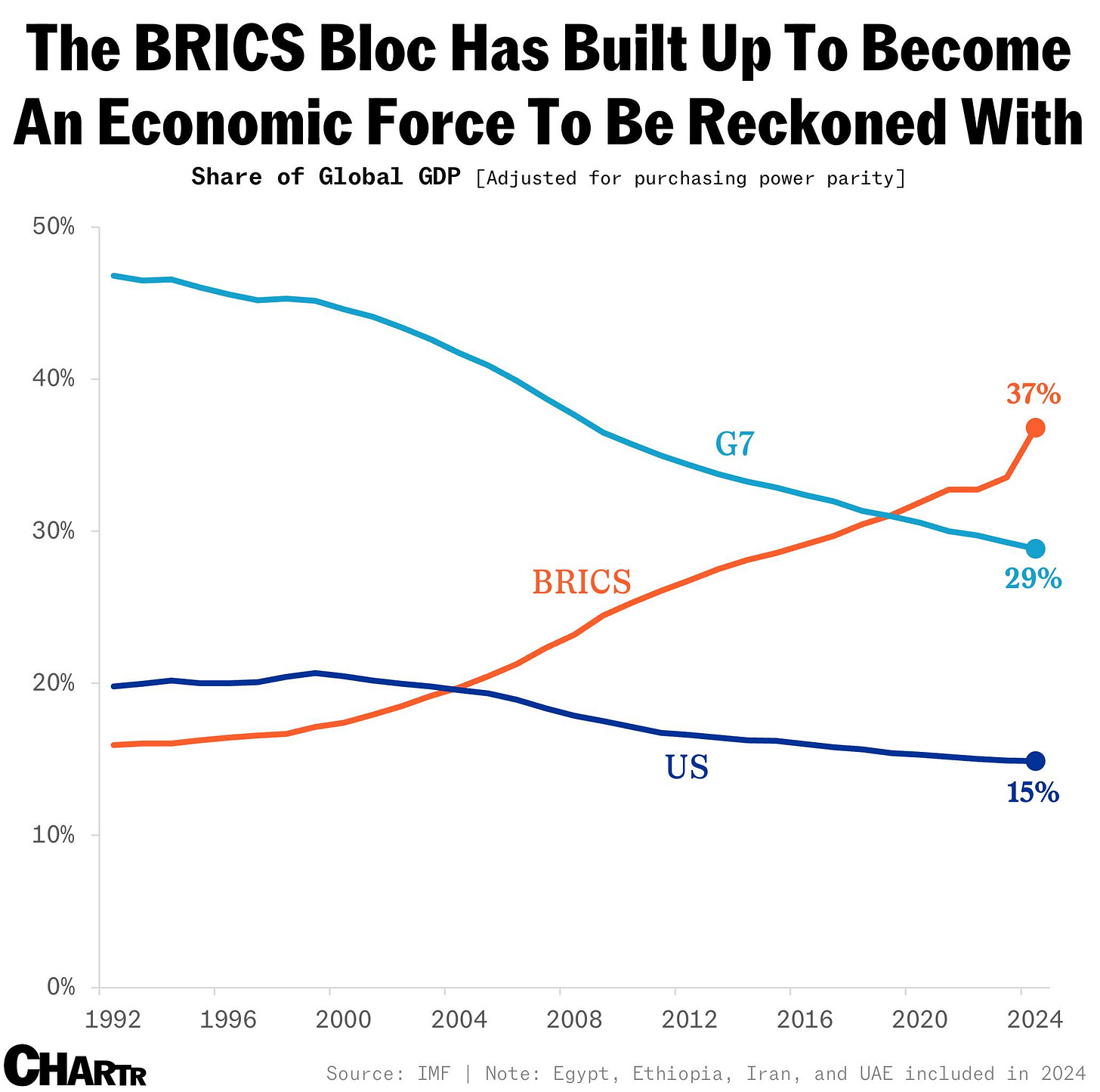Happy Wednesday all,
I wanted to amend an incorrect statement that I made in Sunday’s newsletter. I was misinformed about the backdoor Roth IRA being eliminated in 2026 as part of the Big Beautiful Bill, and I did not fact-check that information (my apologies, this was an oversight on my end). That is indeed incorrect, and the backdoor Roth IRA, as well as the Roth IRA is not going away. Sorry I got that wrong, everyone.
I hope you are doing well this week - we just posted our annual 401k balances by age update video on the YouTube channel, so if you’re looking to see how you stack up against others in your age bracket - consider giving that video a watch!
Enjoy this week’s Hump Days!
- Humphrey & Rickie
👀 Eye-Catching Headlines
TSA will let travelers keep their shoes on at airport security checkpoints (CNBC)
Copper now costs way more in the U.S. than elsewhere. This could hit its economy hard (CNBC)
Starbucks China attracts bids valuing the coffee chain at up to $10 billion, sources say (CNBC)
Africa Wants Its Critical Minerals to Yield Jobs, Not Just Dollars (WSJ)
The Fight Between Musk Acolytes and the White House for Control of DOGE (WSJ)
The Weekly Brief
Challenger to FICO Scores Gets Green Light for Use in Mortgages
In a significant shift for the mortgage industry, the Federal Housing Finance Agency (FHFA) has authorized the use of VantageScore 4.0 for mortgages backed by Fannie Mae and Freddie Mac, directly challenging the long-held dominance of the FICO credit score.
This decision allows mortgage lenders to choose between the VantageScore model and FICO's model, a change from the previous requirement of using only FICO.
The move is part of a broader effort by the FHFA to increase credit access, particularly for individuals with limited credit histories, as VantageScore 4.0 incorporates alternative data like rent and utility payments.
The introduction of competition into the government-backed mortgage market, which accounts for nearly half of recent originations, has significant implications for FICO.
For years, FICO's models have been used in over 90% of U.S. lending decisions, giving the company substantial pricing power. Analysts note that this new policy could erode FICO's ability to continue its steep price increases for credit scores, which have been a primary driver of its earnings growth.
Copper Market in Turmoil as Trump Brings 50% Tariff on US Imports
In response to President Donald Trump's plan to impose a 50% tariff on copper imports, global traders have sent record volumes of the metal to the United States, hoping to profit before the levies take effect.
The tariff announcement caused immediate and extreme volatility, with New York copper prices experiencing a record one-day surge to an all-time high before falling back.
A crucial short-term question for the market is whether copper shipments already in transit to the US will be subject to the new tax upon arrival.
The proposed tariff has raised significant concerns about its economic impact due to the United States' heavy reliance on imported copper, which accounts for over a third of its demand.
Analysts warn that because the U.S. lacks sufficient domestic mining and refining capacity to be self-sufficient, the tariff will likely lead to sustained high prices for copper domestically compared to global markets, increasing costs for a wide range of industries from manufacturing to energy.
While the massive influx of copper imports this year has created a temporary supply buffer, analysts expect that the long-term goal of self-reliance could take at least a decade to achieve.
US Consumer Debt Rises at Slower Pace on Drop in Card Balances
In May, US consumer borrowing saw its slowest increase in three months, rising by only $5.1 billion, significantly less than the projected $10.5 billion and April's revised $16.9 billion gain.
This slowdown was primarily driven by a $3.5 billion decrease in credit card and other revolving debt, marking the first decline since the previous November.
In contrast, non-revolving debt, which includes auto and student loans, continued to rise, though at a slightly slower pace, with an increase of $8.6 billion.
Compounding concerns regarding the economy are persistently high interest rates, with the average rate on interest-bearing credit card accounts reaching a near-record 22.25%.
The financial strain on consumers is also enlarged by a five-year high in credit-card delinquencies and the resumption of mandatory student loan payments.









I can’t wait to see how they implement this. It’s been discussed for years. There are already programs that don’t rely on a FICO score but the media has scared away so many prospective homebuyers. I hope together, as a community reaching out to consumers with education, we can get this working.